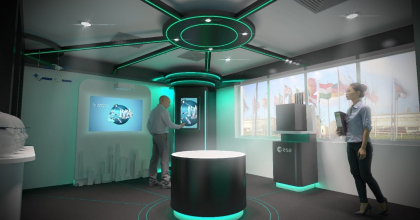Industry representatives attending the ESA-organised event emphasised that an opportunity exists to correct this shortfall at the upcoming International Telecommunication Union’s (ITU) World Radiocommunication Conference (WRC) taking place in early 2012.
“There was a clear message from Industry that more spectrum is required for mobile satellite services (MSS) to evolve to meet user expectations,” said Anthony Baker, Vice President for Spectrum Policy and Development at SES, one of Europe’s biggest satellite operators.
The event provided regulators with an opportunity to ask in-depth questions to industry representatives in order to gauge the urgency of the demand and the nature of future applications. Operators, user communities and manufacturers presented information on the increasing uses of MSS and applications, from tsunami monitoring to the work of the UN High Commissioner for refugees, to the delivery of mobile broadband. Currently, MSS uses L-band frequencies where congestion often occurs.
With the growing demand for broadband services in all regions and at all times, mobile satellite operators emphasised that they can only extend their service offerings if additional spectrum is made available in Europe. Due to the global coverage of many mobile satellite networks however, it is unlikely that an agreement among a few national regulators would be enough, Industry was clear that a global consensus had to be reached. This ESA event was a step toward consolidating an emerging consensus on this issue.
Companies and user representatives provided details of ongoing market and technical studies that explained how additional spectrum would improve the user experience.
“The next step is to complete the technical studies”, explained Paul Deedman, from the UK satellite operator Inmarsat. “We need to demonstrate just how well mobile satellite services can co-exist with other users of the radio spectrum”.
The ITU, a specialised agency of the UN with 192 country members and with competency for telecommunications and radio spectrum issues, has scheduled its main decision-making conference on radio frequency issues, the WRC, for early 2012. This conference provides the unique opportunity for increasing the spectrum needed by mobile satellite users worldwide.
The Industrial Project team ESA_1-5800 is an ARTES 1 activity initiated to look at the changing regulatory and evolutionary environment and its impact on the satellite communication business. Organising these events is included in the project team's mandate.
For more information, see the links located in the column to the right.




